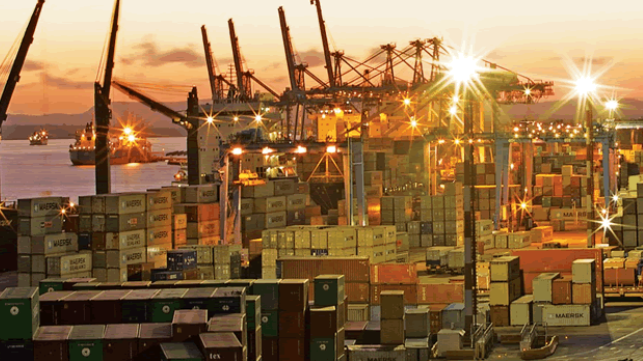Year in Review: Africa's Maritime Sector

It’s the time of the year when we take stock of our achievements, despite the daunting year 2020 proved to be. Covid-19 rolled back immense developmental progress that many countries had achieved, and economic recovery will dominate the global debate in the coming New Year.
The ocean economy represents part of this economic recovery puzzle, and it will be interesting to watch the priorities governments place on their blue economy agendas. But before this, here are some of the major highlights that received the most attention in 2020 and will also play a critical role in influencing growth of the African maritime sector in 2021.
Ports Expansion and Development
Port development received extensive consideration from governments, with most of the 38 African nations with a coastline having a port development project under way. Despite the pandemic, most of these projects were still in operation, although logistical support was hindered by lockdowns.
By 2020, the African port sector had collectively attracted $50 billion in public and private investments. This has heralded an emergence of world-class ports in Africa spread out in Morocco, South Africa and Egypt. Tangier Med Port was ranked at position 35 in this year’s Lloyd’s List report on the world's busiest seaports, rubbing shoulders with renowned ports from developed nations such as the UK and USA.
Migration by Sea
2020 was a year that pushed many people to their maximum possible limits of survival and gave some no option but to risk death. This was so for thousands of people in West Africa, faced by food insecurity and increased poverty levels, who were pushed to undertake perilous sea journeys to Europe in search of dignity.
Particularly, Senegal recorded historic rate of migration by sea as citizens sought economic refuge in the neighboring Canary Islands. In the year up to November, the UN”s IOM (International Organization for Migration) recorded more 18,000 migrants who had crossed the Atlantic to the Canary Islands from Senegal’s coast, exerting pressure on the Spanish government as the island struggles to cope with the increasing numbers of migrants. At least 500 migrants lost their lives along this route this year - an increase from 210 deaths recorded in 2019.
African Maritime Insecurity Conundrum
Considerable efforts have been put in place to stabilize maritime security along the African coastline, but the problem keeps shifting from one region to another.
Take the case of the major win on piracy along the Somali coastline, only for problems to re-emerge in Northern Mozambique with increased attacks on port facilities in Cabo Delgado province. Additionally, with Kenya and Somali diplomatic relations hanging on the edge of a precipice, the regional cooperation that has been critical in combating piracy along the East African coastline might be compromised. Just recently, Somalia expelled Kenya's ambassador and recalled its diplomats from Mombasa over allegations of Kenya’s interference with its internal affairs. It is important to note that Kenya chairs the Contact Group on Piracy off the Coast of Somalia, and the escalating diplomatic tiff will be detrimental to the cooperation of these two states on maritime security in the Horn of Africa.
Maritime insecurity in the Gulf of Guinea has dominated the headlines this year as attacks on merchant ships increased. The International Maritime Bureau recorded a 40 percent rise in armed robbery at sea and piracy in the first nine months of 2020. The solution to Gulf of Guinea piracy is unique in the sense that it differs from similar anti-piracy efforts applied in Somalia or Asia, for unconventional reasons. The emergence of piracy is normally viewed from the lens of poverty, nonfunctional governments or loss of livelihoods, but crude oil bunkering prevalent in West Africa - specifically in the Niger Delta - gives piracy a huge economic proposition when coupled with militancy in the area.

that matters most
Get the latest maritime news delivered to your inbox daily.
These areas will form the focal areas of consideration in the African maritime sector in 2021, and it will be interesting to witness how the stakeholders navigate this changing ecosystem.
Brian Gicheru Kinyua is a freelance writer based in Mombasa City, Kenya where he researches and writes on logistics and the African Blue Economy. His primary focus is on shipping and ports development in Sub-Saharan Africa and how it fits into the global maritime order. He also provides consulting services in communications and public relations.
The opinions expressed herein are the author's and not necessarily those of The Maritime Executive.
